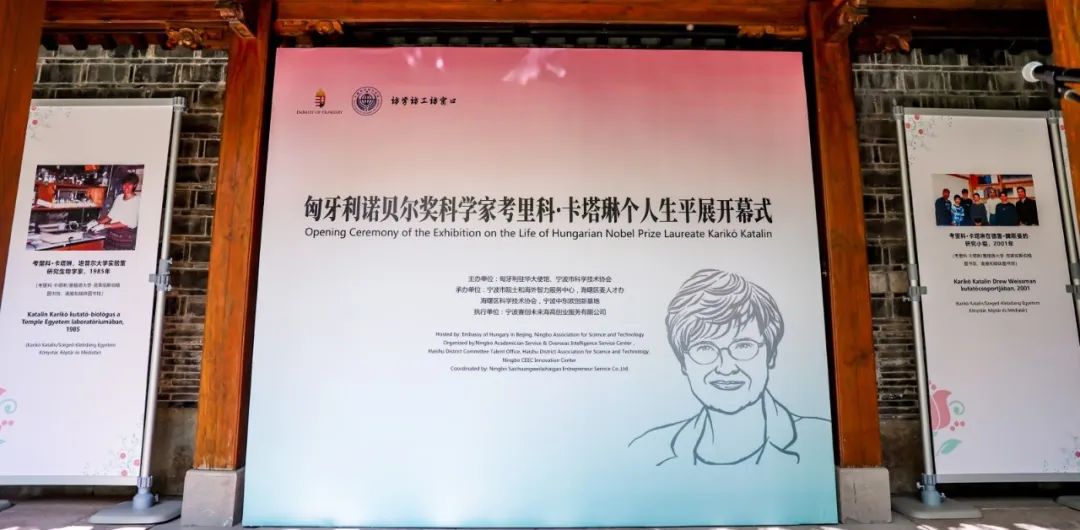
On April 18th, the opening ceremony of the exhibition showcasing the life of Hungarian Nobel Prize laureate Katalin Karikó took place at the Tu Youyou Former Residence Exhibition Hall. The event was co-hosted by the Embassy of Hungary in Beijing and the Ningbo Association for Science and Technology, with support from the Ningbo Academician Service & Overseas Intelligence Service Center, Haishu District Committee Talent Office, Haishu District Association for Science and Technology, and Ningbo CEEC Innovation Center.
Mr. BALOGH András Zoltán, the First Secretary of the Embassy of Hungary in Beijing, along with Fang Wei, Secretary of the Leading Party Members' Group of the Ningbo Association for Science and Technology, and Chi Xun, Vice Chairman of the Haishu District CPPCC , graced the opening ceremony with their presence. Leaders from the Organization Department of Haishu District Committee (Committee Talent Office), Haishu District Association for Science and Technology, as well as Members of the District Political Consultative Conference, Hungarian entrepreneurs, young scientists, and volunteers, among others, also attended the event.





Katalin Karikó, a Hungarian scientist, was awarded the Nobel Prize in Physiology or Medicine in 2023. Her groundbreaking mRNA technology, which was swiftly deployed during the COVID-19 pandemic, has been utilized in vaccines administered to over 1.5 billion people worldwide, significantly contributing to human health. This exhibition marks the first time photos depicting Karikó's upbringing and her legendary career in scientific research have been publicly displayed.
Notably, Karikó's daughter, Susan, also achieved Olympic gold in rowing at the 2008 Beijing Olympics.

Hungary has a reputation for producing inventive minds, with innovations ranging from the Rubik's Cube to computer technology, holography, and the ballpoint pen all credited to Hungarians. To date, Hungary has produced 17 Nobel laureates, a remarkable feat considering its population of around 9.7 million, making it one of the countries with the highest number of Nobel laureates per capita in the world.


